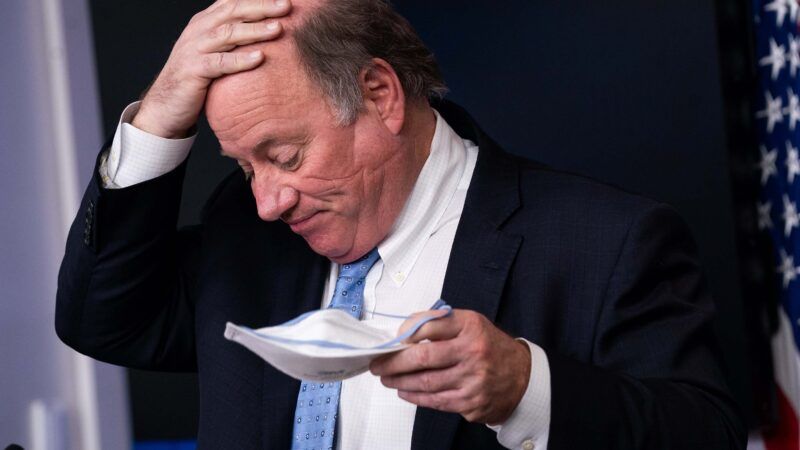Detroit Mayor Is Wrong To Turn Down J&J COVID-19 Vaccines
"The best vaccine for you is the first one you can get."

"The best vaccine for you is the first one you can get," advise most public health experts. Michigan Department of Health & Human Services spokesperson Lynn Sutfin concurs: "Michiganders should make the choice to receive any vaccine that becomes available to them."
Detroit Mayor Mike Duggan apparently disagrees.
The Detroit Free Press reports that the mayor declined to accept a shipment of 6,200 doses of the Johnson & Johnson one-shot vaccine. Why? At a press conference on Tuesday, the mayor asserted, "Johnson & Johnson is a very good vaccine. Moderna and Pfizer are the best. And I am going to do everything I can to make sure the residents of the city of Detroit get the best."
What does the mayor mean by "best"? Duggan stated, "The Moderna and Pfizer vaccines are 95% effective if you get two shots. Johnson & Johnson is one shot, which is nicer, but it's about 67% effective."
Actually, in the United States arm of the Johnson & Johnson (J&J) clinical trial, the vaccine's ability to prevent moderate to severe infection was 72 percent and it is 85 percent effective at preventing severe disease. In addition, the J&J vaccine has been shown to be effective against the new, more contagious COVID-19 variants that are now spreading across the country. And it is likely that many citizens would prefer the convenience of getting a one-and-done J&J shot as opposed to waiting nearly a month to get a second Moderna or Pfizer/BioNTech shot.
But more importantly, all three vaccines are essentially 100 percent effective at preventing hospitalizations and deaths from COVID-19. Protecting Detroit's citizens against those severe outcomes by taking advantage of available vaccine doses would seem to be a worthy endeavor. After all, a slower rate of vaccination means more lives lost.
It bears mentioning that Detroit will not receive additional doses of the Moderna and Pfizer/BioNTech vaccines to replace the J&J doses it rejected.
As Crain's Detroit Business points out, the city lags behind other local jurisdictions and the state in the percentage of citizens already vaccinated. In Detroit, 11 percent of adults have been vaccinated, while that figure is 16.5 percent for neighboring Macomb County; 19.1 percent for Oakland County; 18.6 percent for outer Wayne County; and 18.5 percent for Michigan as a whole. Possibly owing to Duggan's decision, both Macomb County and Oakland County happily received more doses of the J&J vaccine than they were expecting. It's worth noting that the median household incomes for Macomb County, Oakland County, and Detroit are $63,000, $80,000, and $31,000, respectively, meaning the mayor's rejection of the J&J vaccine will impact disadvantaged populations.
Misleading Americans into thinking that the J&J vaccine is somehow "second-class" could also set back the goal of reaching herd immunity. That involves vaccinating as many Americans as quickly as possible in order to get to the point where the virus cannot circulate widely throughout the population.
Duggan says that the city can meet the current demand for vaccinations with its current allocation of the Moderna and Pfizer/BioNTech vaccines. Demand, however, is set to surge in the next few weeks as Michigan begins to offer vaccinations to people over age 50. Detroiters waiting longer for vaccination appointments later this month may disagree with what the mayor thinks is "best" for them.


Show Comments (67)